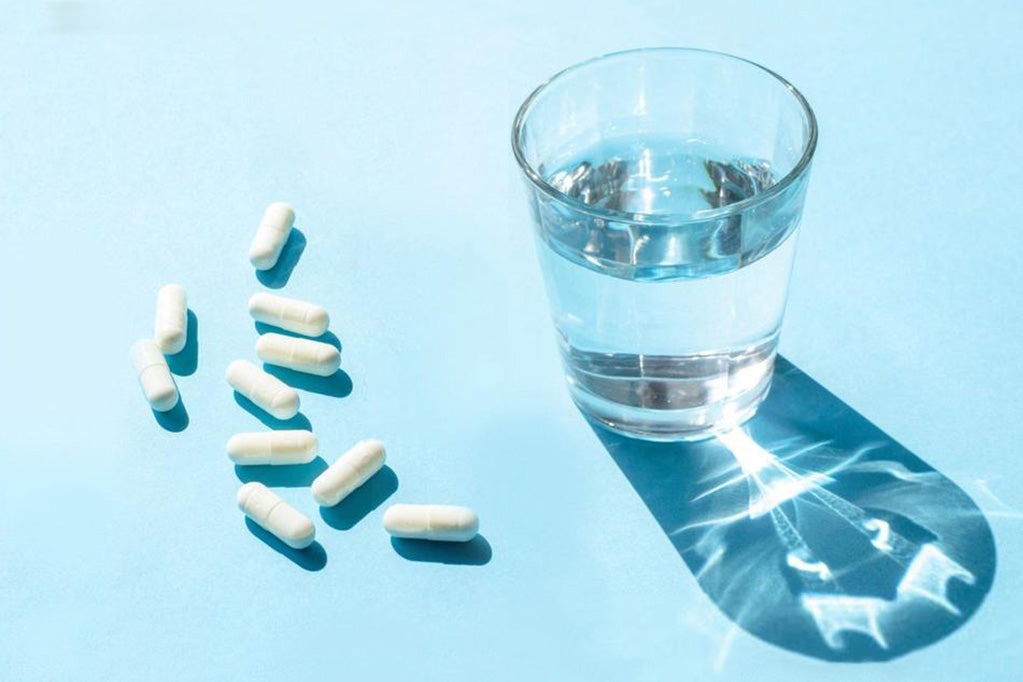
Oct 22 , 2019
Digestive Health for Women: Probiotics + Prebiotics + Cranberry
9 Most Frequently Asked Questions About Probiotics, Prebiotics and Cranberry
What are probiotics?
The intestines are teeming with trillions of bacteria cells, mostly bacteria, but not all of them are friendly. Probiotics are the specific live strains of “good bacteria” that repopulate the gut with healthy microbes and confer a host of health benefits.
How do probiotics work?
Probiotics help your body maintain a healthy community of microorganisms and promote a healthier environment overall. When you lose "good" bacteria in your body, for example, probiotics can help replace them. They can also help maintain the balance of your "good" and "bad" bacteria to keep your body working the way it should.
What does the “CFU” number mean?
Most supplements are measured in milligrams. Probiotics, on the other hand, are measured in CFUs (Colony Forming Units), with numbers in the billions. This refers to the number of viable, live bacteria cells capable of dividing and forming colonies.
What types of bacteria are in probiotics?
“Probiotic” is a catch-all term for friendly bacteria. There are various kinds of them performing different roles in your gut. They are generally described by their genus (e.g., Lactobacillus) and species (rhamnosus). But how to choose the right one will depend on your health goals.
What is microbiome?
Microbiome refers to the community of microorganisms that live on and in the human body. About 95% of live microorganisms reside in the gastrointestinal (GI) tract and 1,000 estimated species of bacteria in the lower digestive tract. Due to the huge array of bacterial cells in the body, the host and the microorganisms inhabiting it are generally referred to as a “superorganism”.
Is daily consumption necessary?
The intestine is in a constant state of replenishment and the battle between helpful bacteria and harmful bacteria never takes a day off.
Daily supplementation is recommended in order to keep a sufficient supply of probiotics in your system.
Is refrigeration absolutely necessary for probiotic storage?
Refrigeration is recommended whenever possible for full potency of the probiotics over time. However, technologies for keeping probiotics alive at room temperature have been developed so that refrigeration isn’t a must anymore.
Since probiotics must reach the intestines live and intact for optimum results, choosing a stable supplement is necessary. Doctor’s Recipes Probiotics uses the latest shelf stable technology and is perfect for you at home and on the go.
Why isn’t it enough to eat fermented food or yogurt?
We’re all for eating fermented foods, but the difference is that you don’t always know the quantity or type of probiotic you are consuming.
With probiotics having strain-specific effects, yogurt or fermented food may not have the same desired effects. Supplements can be more convenient and may provide higher levels of probiotics.
In addition, food industry usually populates products with engineered “filler nutrients” that are harmful to the intestinal flora.
Doctor's Recipes probiotics delivers only the purest ingredients professionally formulated, sparing you the pain of seeking and calculating.
What are Prebiotics?
Prebiotics are compounds in food that selectively stimulate the growth or activity of desirable colon microorganisms. They are non-digestible dietary fibers that feed the beneficial bacteria in your gut. By specifically altering the composition of organisms in the gut microbiome, they can help restore digestive balance/improve digestive comfort, strengthen the body’s natural defense and boost mineral absorption.
A synergistic combination of probiotics and prebiotics is called synbiotics. Probiotics help restore the microbiota, while prebiotics provide the nutrients the bacteria need to thrive on. The fusion of the two is essential to support the spread of bacteria that is conducive to maintaining a healthy equilibrium in the microbiota.
What Can Cranberries Do for You?
People call cranberries a superfood for a good reason: they are indeed packed full of beneficial nutrients and have all sorts of health benefits. Compounds found in cranberries, known as proanthocyanidins (PACs), can help prevent the adhesion of certain harmful bacteria, including E. coli (the cause of about 85% of UTIs and 90% of cases of acute pyelonephritis), onto cell walls.
